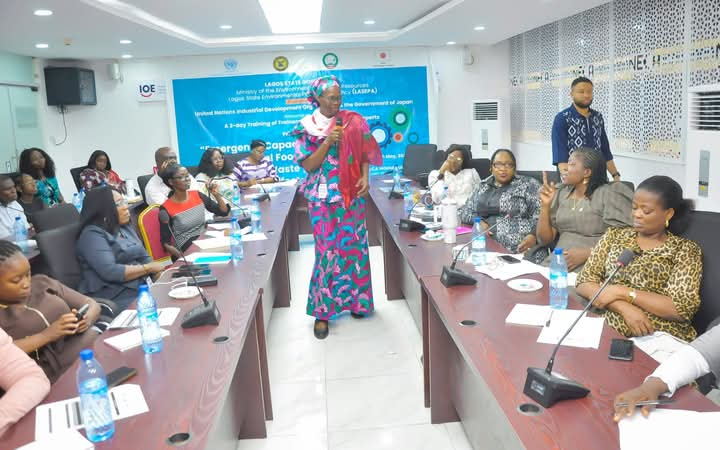The Lagos State Environmental Protection Agency (LASEPA), in collaboration with the United Nations Industrial Development Organisation (UNIDO) and the Government of Japan, has launched an emergency training initiative aimed at curbing the spread of cholera in flood-prone areas of Lagos State.
The two-day Training of Trainers (ToT) workshop, which commenced on Tuesday at NECA House, Alausa, Ikeja, is part of project 240236 titled “Emergency Capacity Building of Informal Food and Water Vendors and Waste Workers in Flood-Affected Lagos”, sponsored by the Japanese Government.
LASEPA General Manager, Babatunde Ajayi, described the training as a crucial emergency response to the recent cholera outbreak, particularly affecting the Badagry and Ikorodu areas.
READ ALSO: Deputy governor’s brother, others emerge as APC candidates for Lagos LG polls
“This is not just training — it is an emergency intervention. We are already applying the knowledge in real-time.
“These affected communities lack basic sanitary infrastructure, which makes proactive prevention even more critical. Prevention is not only better but also cheaper than cure,” he said.
Ajayi commended the Japanese Government for its timely support and thanked UNIDO for facilitating the programme.
He urged participants to fully engage, noting that the knowledge gained would be deployed immediately to contain the outbreak.
UNIDO National Programme Coordinator, Oluyomi Banjo, said the initiative goes beyond health protection to restoring dignity and building resilience among vulnerable groups.
“This project is not only about preventing cholera; it’s about empowering informal food and water vendors, as well as waste workers, who are often underserved despite playing vital roles in our urban ecosystem,” Banjo said.
He also called for practical, inclusive, and gender-sensitive knowledge dissemination to reach at-risk populations.
LASEPA’s Director of Environmental Sustainability, Adebayo Adedayo, explained that the ToT aims to equip LASEPA personnel with the tools to drive sustainable cholera prevention education.
She noted that the ultimate goal is to inspire behavioural change among vendors and reduce the risk of disease transmission.
The workshop featured technical sessions led by public health experts.
Su Zar Chi Lwin from the Food Hygiene Chemistry Laboratory at Kyushu University, Japan, provided insights on global best practices for cholera prevention.
Meanwhile, Adedayo Aderibigbe, a Consultant Public Health Physician, focused on the local context and conducted practical training on safe food handling, water hygiene, and personal sanitation.
Participants also took part in role-play and scenario-based learning to simulate field conditions and improve their outreach capabilities.
The training initiative reflects a multi-agency commitment to strengthening public health preparedness in response to climate-induced health risks and urban sanitation challenges.
READ ALSO: Lagos govt warns landlords, agents against unjustified rent hikes
Trained LASEPA officers will now cascade the knowledge to frontline vendors and waste handlers across flood-affected communities in Lagos.



